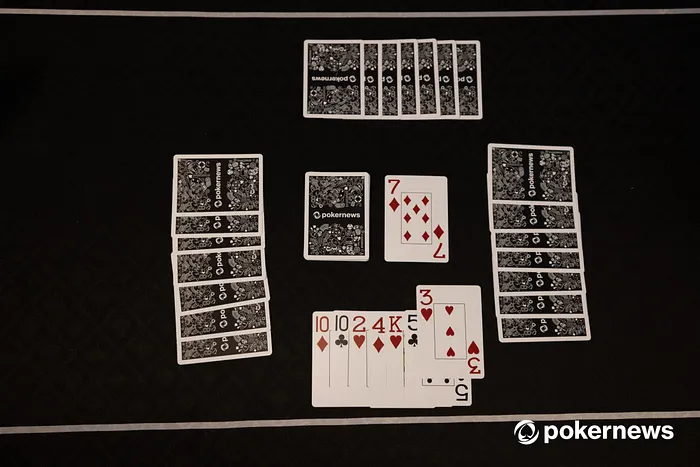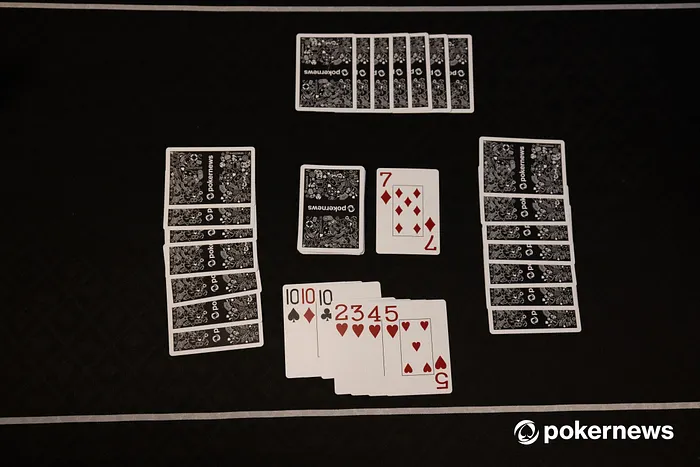Mastering Rummy Strategy - Top Tips for Winning

Just like Poker, mastering strategic gameplay is paramount for success in Rummy. This section delves into the fundamental aspects of developing effective Rummy strategies, offering essential insights to elevate your gameplay. By emphasizing the pivotal role of strategic thinking, players can unlock the key to consistent success in Rummy.
This PokerNews guide will help you discover actionable tips and nuanced approaches to refine your skills and emerge victorious in this classic card game.
Basic Rummy Strategy Tips
This section of the PokerNews guide delves into the fundamental aspects of basic Rummy strategy, laying the groundwork for success in this engaging card game. One of the cornerstones is mastering the art of hand assessment, a skill crucial for informed decision-making. By evaluating the cards in hand, players can strategically plan their melds, optimizing their chances for victory.
Meld planning is another key element explored in this section. Successful players not only assess their current hand but also anticipate potential combinations to create powerful melds. Understanding the synergy between cards allows for effective meld planning, providing a strategic advantage over opponents.
Smart discarding and drawing form the tactical dance in Rummy. Players are advised to discard cards strategically, minimizing the benefit for opponents while staying focused on their own meld objectives. Simultaneously, drawing wisely enhances the quality of one's hand, contributing to a well-thought-out strategy.

This section aims to equip players with the essential basics, emphasizing the significance of meticulous hand assessment, thoughtful meld planning, and savvy discarding and drawing. As players assimilate these foundational strategies, they lay a solid groundwork for more advanced tactics explored in subsequent sections, ultimately honing their skills for triumph in the world of Rummy.
Advanced Rummy Strategy Techniques
Advanced Rummy players distinguish themselves by employing sophisticated techniques that go beyond the basics of the game. One crucial aspect of their strategy involves adeptly reading opponents to gain insights into their card holdings and potential moves. This involves observing patterns in their discards, melds, and draws, allowing skilled players to anticipate their rivals' next moves. By understanding opponents' tendencies, advanced players can adjust their own strategies to disrupt opponents' plans while optimizing their own chances of success.
Adapting strategies based on the evolving game is another hallmark of advanced Rummy gameplay. This requires a dynamic approach, as the game progresses and new information becomes available. Expert players remain flexible, ready to alter their game plan in response to changing circumstances. Whether it's modifying the focus on specific sets and runs or adjusting the pace of play, adaptability is key. Advanced Rummy strategists also pay close attention to the cards being discarded by opponents, which can provide valuable information about their hand composition.
Optimizing decisions forms the crux of advanced Rummy gameplay. This involves not only making sound individual moves but also considering the broader context of the game. Players assess the potential impact of their actions on the overall state of play, maximizing their chances of achieving a favorable outcome. By blending keen observation, adaptability, and strategic decision-making, advanced Rummy players elevate their game to a level where skill and intuition converge for a winning combination.

Strategic Card Management in Rummy
In the realm of Rummy, strategic card management is a fundamental skill that sets skilled players apart. Efficiently managing cards involves recognizing the value of each card in different scenarios. Adept players assess the potential of each card in contributing to sets and runs, prioritizing high-value cards for strategic melding while cautiously discarding less useful ones. Recognizing the evolving dynamics of the game, they balance aggression and defensive play, adapting their card management strategy accordingly.
Understanding the context of the game is crucial when determining the value of each card. For instance, holding onto a particular card might be advantageous in thwarting opponents' potential melds, while at other times, it's strategically beneficial to discard it. This delicate balance extends to the dichotomy of aggression and defense. Skilled players know when to play aggressively, racing to complete melds, and when to adopt a defensive stance by holding back cards strategically to disrupt opponents' plans.
In essence, strategic card management in Rummy is a nuanced dance, requiring players to assess the current state of the game, anticipate opponents' moves, and make decisions that maximize their chances of success. This skillful orchestration of card play adds an extra layer of depth to the game, transforming it into a captivating strategic pursuit.
Quick Guide - Top 5 Rummy Strategy Tips for Success
Mastering Rummy requires a strategic mindset and a nuanced approach to gameplay. Here's a quick guide encapsulating the top five Rummy strategy tips for success. Firstly, astute card observation is paramount. Pay close attention to your opponents' discards and draws to discern their strategies. This insight enables you to adapt your gameplay, disrupting their plans while optimizing your own.
Secondly, strategic card management is the linchpin of success. Recognize the value of each card in diverse situations. Prioritize high-value cards for melding while judiciously discarding less useful ones. This efficient management strikes a balance between aggression and defense, a third key tip. Know when to play aggressively, pushing to complete melds, and when to adopt a defensive posture by thwarting opponents' plans with strategic card holdings.
Next, smart discarding is a game-changer. Consider the potential implications of each discard, thinking not only about your own needs but also about how it might benefit or hinder your opponents. This foresight helps control the flow of the game and gives you a strategic edge. Fourthly, meld strategically by keeping multiple options open. Avoid committing too early to a specific set or run, allowing flexibility in adapting to changing circumstances.
Lastly, stay adaptable. Rummy is a dynamic game, and successful players adjust their strategies based on the evolving nature of the match. Flexibility ensures you can capitalize on opportunities and navigate challenges effectively. By incorporating these five strategic pillars into your gameplay, you'll enhance your Rummy skills and significantly improve your chances of success at the card table.
Check out our other Rummy guides!
FAQs - Rummy Strategy Tips
How important is strategy in Rummy, and can you win without a strategic approach?
Strategy is fundamental in Rummy, significantly influencing the outcome of the game. While luck plays a role in drawing cards, a strategic approach enhances your chances of success. Winning consistently without a strategy is challenging, as effective card management, keen observation of opponents, and thoughtful decision-making are key components of a winning Rummy strategy.
What are common mistakes to avoid in Rummy strategy, especially for beginners?
Beginners often fall into the trap of discarding cards without considering potential implications or focusing too narrowly on specific melds. Another common mistake is not adapting to the evolving game, leading to missed opportunities or vulnerability to opponents' strategies. Patience and a balanced approach are crucial, avoiding overcommitment to a particular strategy too early in the game.
How do experienced players adapt their strategies in different phases of a Rummy game?
Experienced players exhibit a dynamic approach, adapting their strategies to the changing dynamics of the game. In the early phases, they focus on building a flexible hand, avoiding early commitments to specific melds. As the game progresses, they adjust their strategy based on opponents' moves, optimizing their own melds, and disrupting rivals' plans. Adaptability is a hallmark of seasoned Rummy players.
Are there specific strategies for playing defensively in Rummy, especially when falling behind?
Playing defensively in Rummy involves holding cards strategically to thwart opponents' plans. When falling behind, focus on disrupting opponents by discarding cards that interfere with their potential melds. Prioritize defensive plays to slow down the pace of the game, giving yourself time to regroup and catch up. Defensive strategies can be instrumental in turning the tide in your favor.
Can certain strategies be more effective in specific Rummy variations or tournament formats?
Yes, strategies can vary based on the Rummy variation or tournament format. For example, in Gin Rummy, melding quickly can be advantageous, while in Indian Rummy, the focus may be on strategic discards. Tournament formats may require a more aggressive approach, with players adjusting strategies based on the tournament's rules, point systems, and the level of competition. Tailoring strategies to the specific context enhances overall effectiveness.
